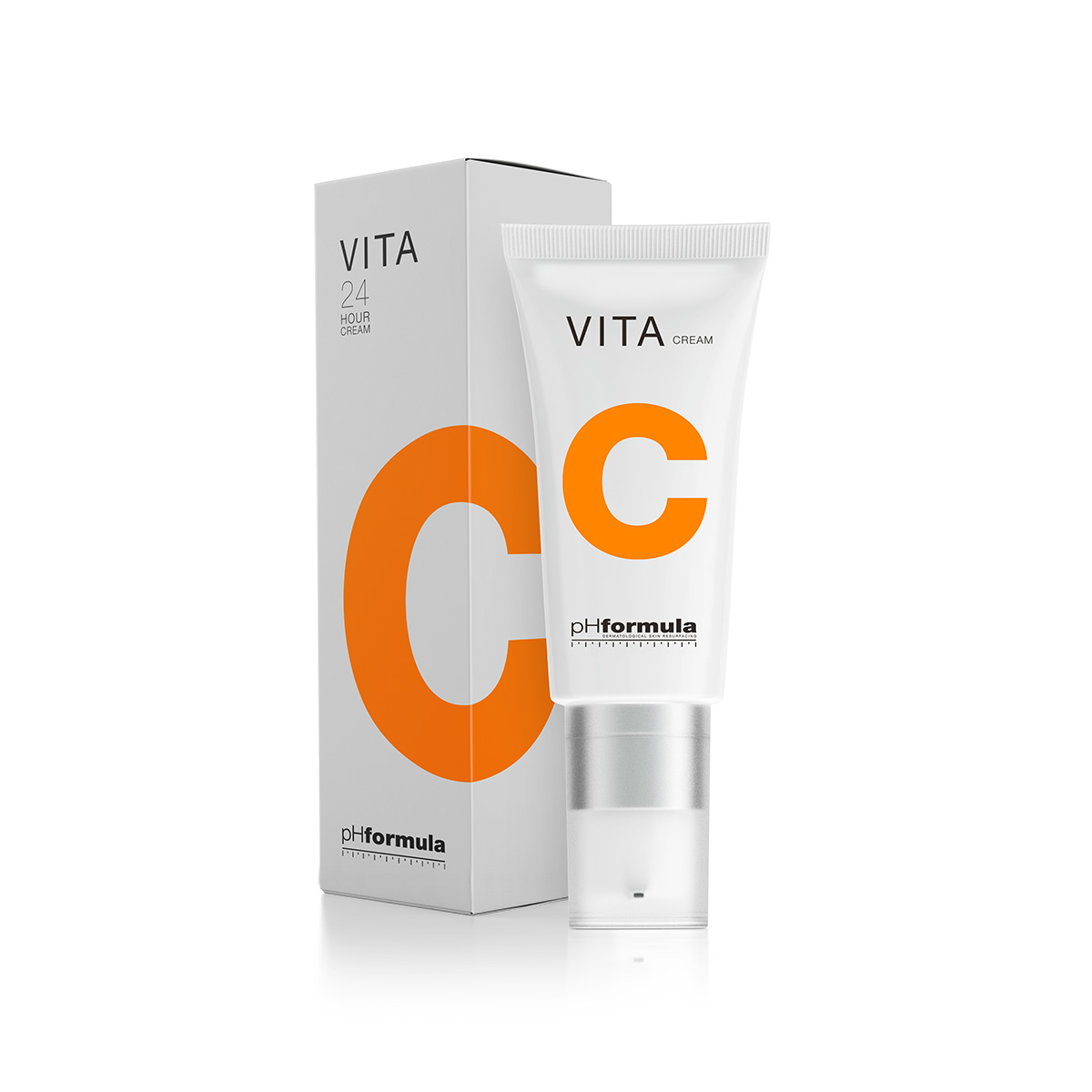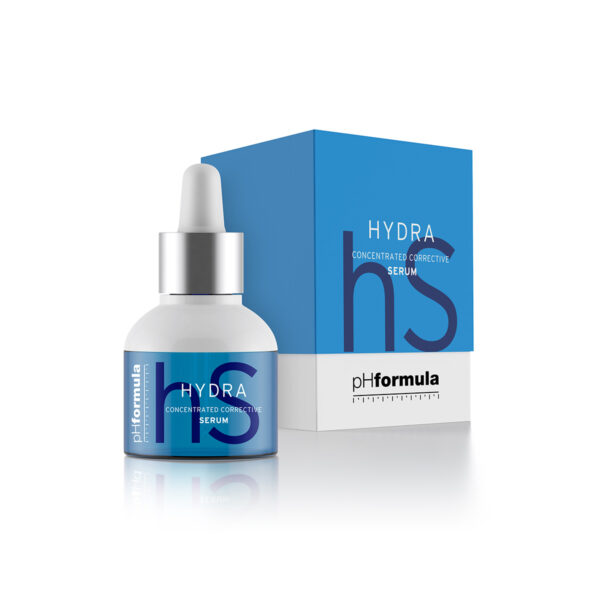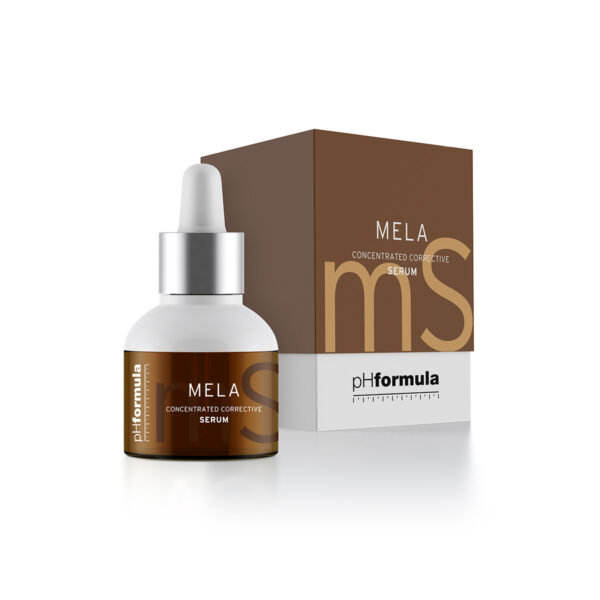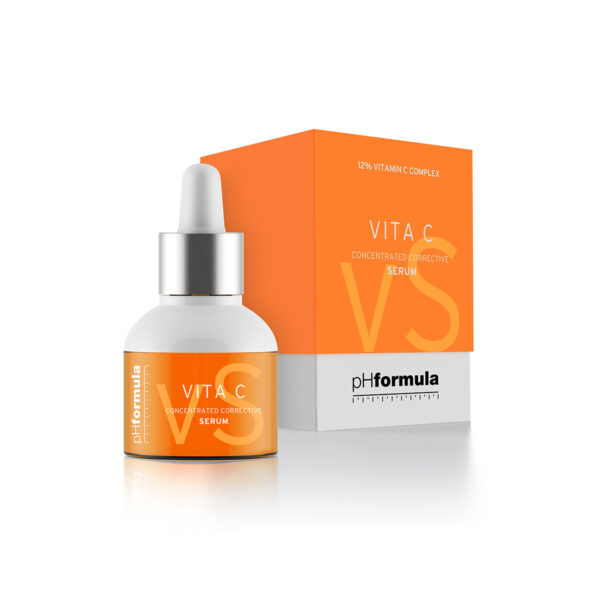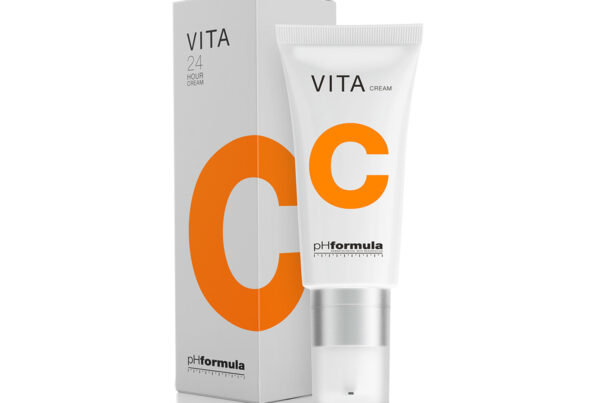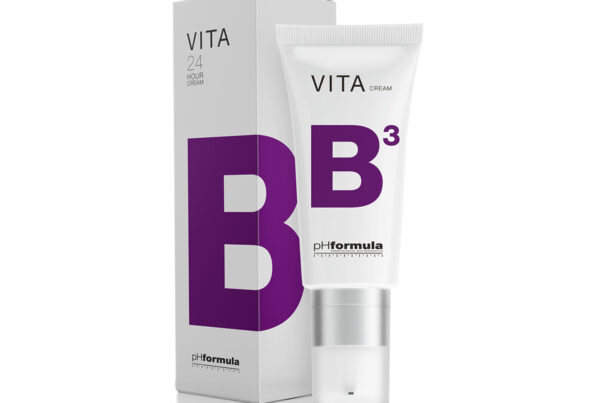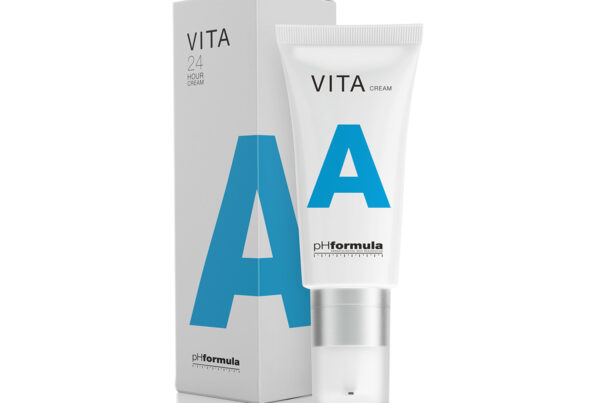The skincare industry has witnessed a surge in the popularity of topical Vitamin C, with increasing recognition for its remarkable benefits. This surge is backed by shedding a light on the potent advantages that Vitamin C offers to the skin. As we explore the intricacies of this powerhouse ingredient, we aim to provide a comprehensive understanding of the scientific merits associated with topical Vitamin C, focusing specifically on it’s influence on cellular renewal, anti-oxidation, and tone improvement.
Cellular Renewal:
Vitamin C serves a pivotal role as a cofactor in collagen synthesis, acting as a catalyst in the formation of this essential structural protein. By participating in enzymatic reactions, Vitamin C facilitates the cross-linking of collagen fibres, reinforcing the skin’s structure and integrity. This involvement in collagen synthesis is fundamental to maintaining skin elasticity and resilience, contributing to a smoother and more supple complexion.
The impact of collagen synthesis on skin elasticity and resilience cannot be overstated. As Vitamin C promotes the formation of collagen, the skin gains increased firmness and elasticity. This bolstering of the skin’s structural support translates into improved resilience, effectively combating factors that contribute to sagging or loss of skin tone. The result is a more lifted and youthful appearance.Vitamin C’s contribution extends to the realm of cellular turnover through the stimulation of fibroblast proliferation. Fibroblasts are essential cells responsible for synthesising collagen and other extracellular matrix components. By enhancing fibroblast activity, Vitamin C accelerates the turnover of skin cells, facilitating the regeneration of new, healthier cells. This process promotes a rejuvenated complexion and aids in addressing issues such as dullness or uneven texture.
The intricate connection between enhanced cellular renewal and the reduction of fine lines, wrinkles, and photo-ageing underscores Vitamin C’s efficacy in anti-aging skincare. As Vitamin C supports accelerated cellular turnover, it minimises the accumulation of damaged cells caused by environmental stressors like UV radiation. This, in turn, leads to a visible reduction in the appearance of fine lines, wrinkles, and photo-ageing, fostering a more youthful and resilient skin texture.
Collagen synthesis stands as a cornerstone in the intricate web of processes that sustain skin elasticity and firmness. Collagen, the structural protein abundant in our skin, plays a vital role in maintaining its resilience and youthful appearance. This section delves into the essence of collagen synthesis, setting the stage for a deeper understanding of how Vitamin C interlaces with this fundamental process.
Mechanism of Collagen Synthesis:
At the molecular level, collagen synthesis involves a choreographed dance of cellular events. Vitamin C takes centre stage as a crucial cofactor in this intricate mechanism. As an essential participant, Vitamin C supports the enzymatic reactions that weave the collagen fibres together, contributing to the fabric that gives skin its strength and suppleness.
The Nighttime Advantage:
Harnessing the natural repair and regeneration that occurs during the night, applying Vitamin C in the evening proves to be a strategic move. This nocturnal application aligns with the skin’s inherent processes, providing an optimal environment for collagen synthesis. As the body invests in cellular rejuvenation during sleep, the presence of Vitamin C acts as a catalyst for heightened collagen production.
Reduction of Fine Lines and Wrinkles:
The intrinsic link between collagen synthesis and skin’s structural integrity translates into tangible benefits. By supporting collagen synthesis through nightly applications of Vitamin C, the skin gains a powerful ally in the battle against fine lines and wrinkles. Consistent integration of Vitamin C into the skincare routine unfolds as a proactive strategy for fostering long-term skin rejuvenation.
Evening Skin Tone:
Vitamin C exhibits a dual action as a potent melanin inhibitor, making it a valuable component in addressing hyperpigmentation and uneven skin tone. This dual functionality positions Vitamin C as a versatile agent in promoting a more balanced and radiant complexion.
Central to Vitamin C’s role in inhibiting melanin synthesis is its interference with the enzyme tyrosinase. Tyrosinase is a key player in the production of melanin, the pigment responsible for skin coloration. By inhibiting tyrosinase activity, Vitamin C disrupts the melanin production process, leading to a reduction in hyperpigmentation and the prevention of dark spots.
Vitamin C’s efficacy in addressing hyperpigmentation, dark spots, and uneven skin tone is a result of its targeted action on melanin. Through its ability to impede melanin synthesis, Vitamin C helps fade existing dark spots and prevents the formation of new ones. This makes it a valuable ally for those seeking a more uniform and luminous skin tone.
The connection between enhanced collagen synthesis and improved skin texture is a pivotal aspect of Vitamin C’s contribution to overall tone enhancement. As Vitamin C stimulates collagen production, it promotes skin firmness and resilience. This improvement in skin structure contributes to a smoother and more refined texture, creating a harmonious canvas that complements the evenness achieved through melanin inhibition.
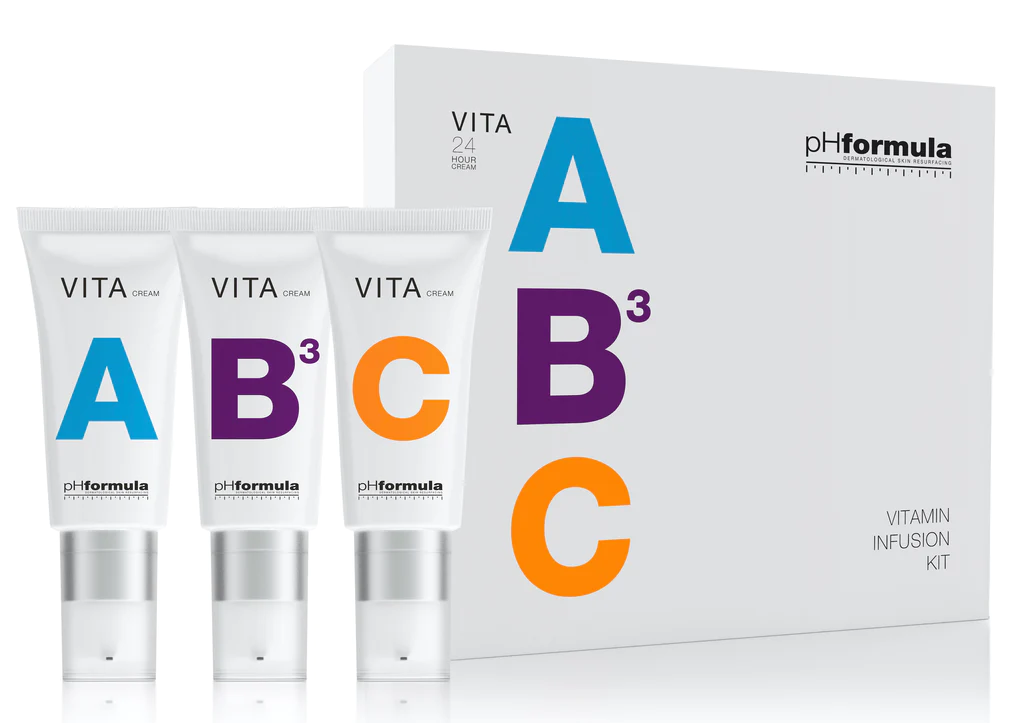
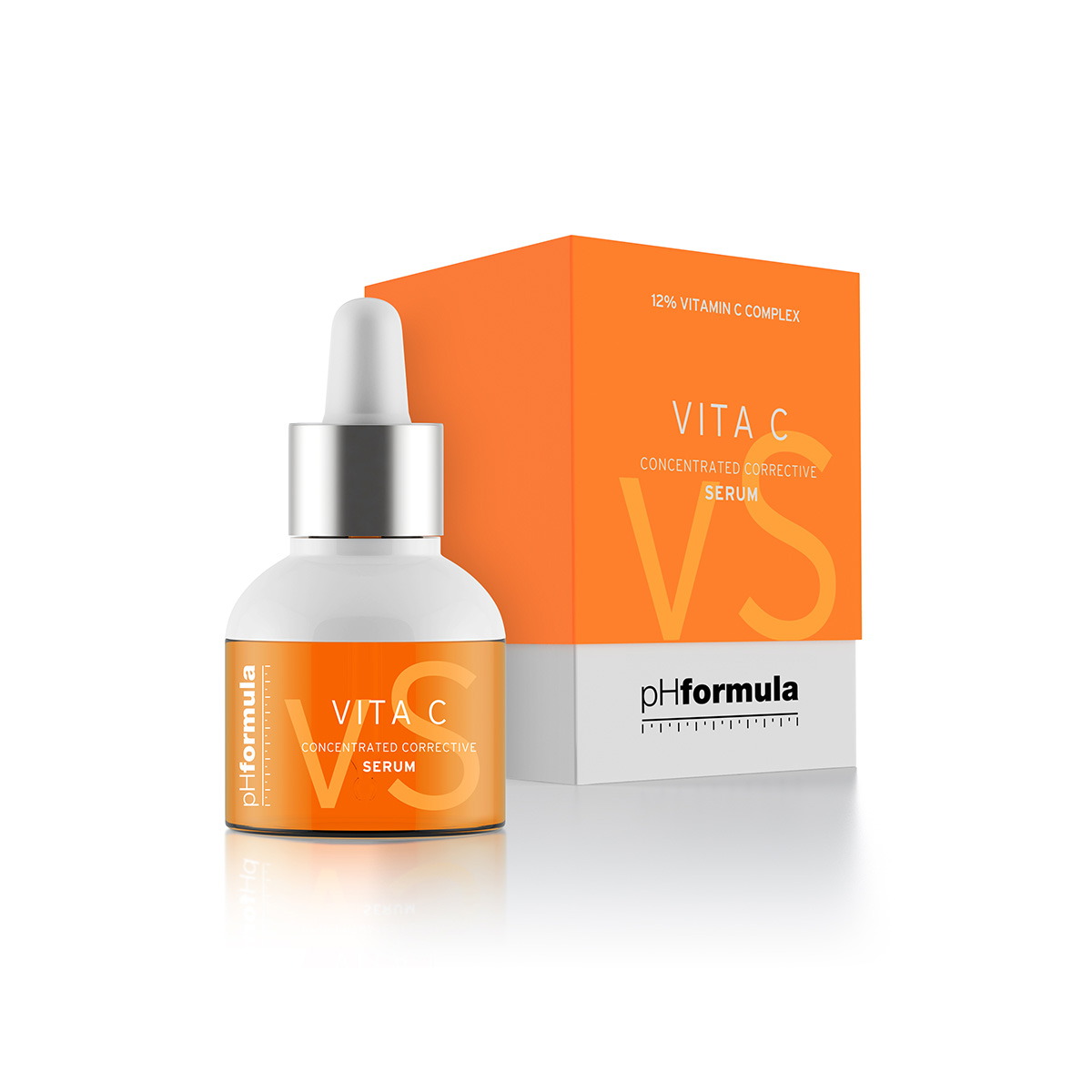
Melanin Inhibition Mechanism:
The magic behind Vitamin C’s brightening prowess lies in its ability to inhibit melanin production. Melanin, the pigment responsible for skin colour, can sometimes lead to uneven tone and unwanted dark spots. Vitamin C intervenes in this process by modulating enzymatic reactions, effectively regulating melanin production and paving the way for a more balanced complexion.
Addressing Hyperpigmentation and Dark Spots:
Specifically targeting hyperpigmentation and dark spots, Vitamin C emerges as a targeted solution. These common skin concerns often arise from an overproduction of melanin. By using Vitamin C at night, individuals can strategically address these issues, witnessing a gradual reduction in the appearance of hyperpigmentation and achieving a more uniform skin tone.
Achieving Even Skin Tone:
The journey toward an even skin tone becomes more attainable with the consistent use of Vitamin C. The direct impact of melanin inhibition translates into a harmonious complexion, free from the uneven pigmentation that may have been a source of concern. Vitamin C’s ability to contribute to a balanced skin tone positions it as a valuable asset in the pursuit of radiant and evenly toned skin.
Anti-oxidative Defence:
Oxidative stress, defined as an imbalance between free radicals and the body’s ability to neutralise them, plays a pivotal role in the aging process of the skin. This phenomenon is characterised by an excess of free radicals, highly reactive molecules that can cause cellular damage, leading to premature aging, fine lines, and wrinkles.
Vitamin C’s role as an antioxidant is paramount in neutralising free radicals, mitigating the deleterious effects of oxidative stress. Acting as an electron donor, Vitamin C stabilises free radicals, preventing them from causing harm to cellular components. This antioxidant prowess forms a crucial defence mechanism against oxidative stress and contributes to maintaining skin health.
Exogenous factors such as UV radiation and pollution play a significant role in the generation of free radicals within the skin. UV rays and environmental pollutants induce the formation of these reactive molecules, triggering oxidative stress. Understanding the impact of these external factors is essential in appreciating Vitamin C’s role as a protective shield against their harmful effects.
Vitamin C’s ability to prevent oxidative damage extends to its capacity to safeguard lipids and proteins within skin cells. Oxidative stress can compromise the structural integrity of lipids and proteins, leading to visible signs of aging. Vitamin C’s anti-oxidative properties act as a shield, preserving the health and functionality of these vital cellular components, thereby contributing to overall skin resilience and a youthful appearance.

